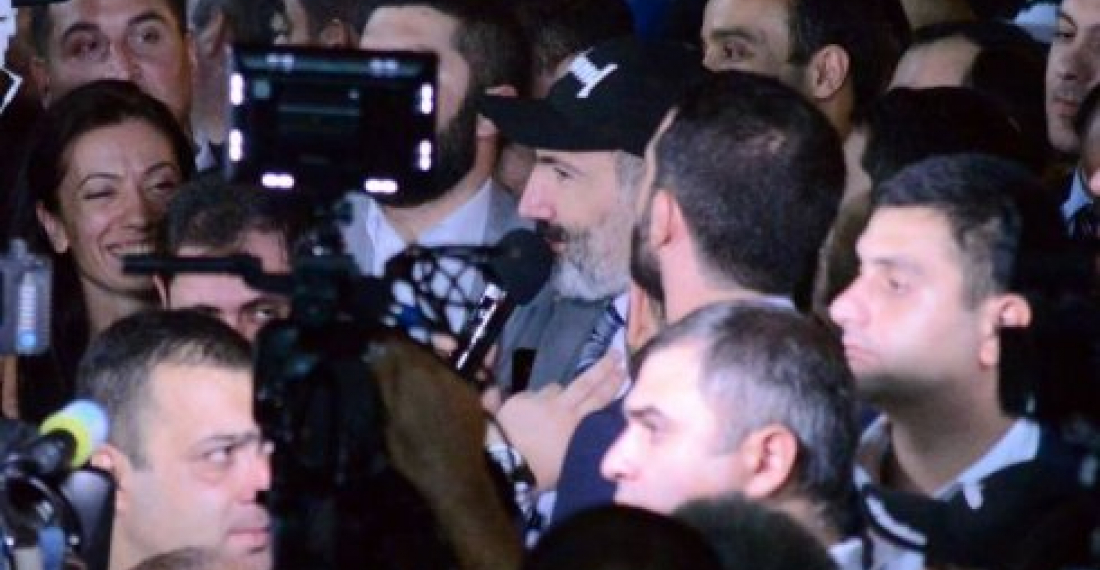There was political turmoil in Armenia overnight as prime mInister Nikol Pashinyan pressed on with plans to hold parliamentary elections by the end of the year.
During the day, parliament, which is still dominated by the Republican Party of Armenia (RPA) led by the former president Serzh Sargsyan, had aopted changes to the rules of procedure that were seen a part of moves to thwart the prospect of early elections.
Angry crowds gathered in front of the parliament building, at some point trying to enter the building where MPs were still huddled. Eventually the prime minister entered parliament and is reported to have had a two hour negotiation with the RPA, and two other political parties, Prosperous Armenia and the Dashnak party, who supported their move. Emerging from the talks Pashinyan indicated that the MPs had agreed to the will of the people. Pashinyan said the MPs have understood the people's message and said they will respect it.
Pashinyan emphasized that the political crisis in the country cannot continue for long, and snap parliamentary elections are needed.
"I have to resign in coming days, but I expect that the Republican Party and the parliament would not make people nervous, as they have to realise that if I resign and they propose a candidate, and they can do it theoretically, this would provoke reaction of people," he emphasised.
Pashinyan said he talked on behalf of the people and conveyed a message that snap parliamentary elections should be held in the first half of December. He said elections cannot be held in May because there is a political crisis and postponing elections until May means to postpone solution to the crisis. He added that there was a popular demand for snap elections.
According to the Constitution, if the prime minister resigns and a replacement is not elected in two rounds, a day of elections is set not earlier than 30 days and not later than 40 days after.
During the night it was also announced that the Ministers who represent Prosperous Armenia and the Dashnaks in the government will be sacked. Their removal has already been signed by President Armen Sarkissian.
source: commonspace.eu with agencies
photo: Armenian prime minister Nikol Pashinyan addressing thousands of supporters in front of the Armenian parliament early on Wednesday morning (3 October). Picture courtesy of Armenpress, Yerevan).







